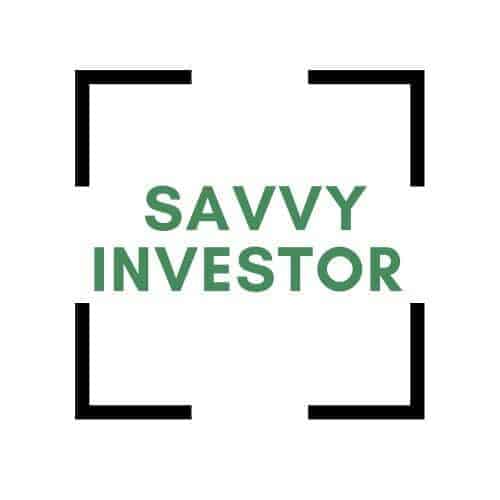It’s easy to look at real estate investing from the outside and assume it’s all about freedom. Passive income, flexible schedules, building long-term wealth without being tied to a desk. And yes, that’s all possible. But what’s not talked about enough is the weight that comes with it—the pressure, the unpredictability, and the sense that if you stop for even a second, the whole thing might come crashing down.
The truth is, real estate investing can be just as demanding as any 9-to-5 job, sometimes more. And unlike a job, there’s no manager to set boundaries, no HR department to enforce work-life balance, and no one to give you permission to take a break.
So what happens? You keep going. You hustle harder. You pile more onto your plate. Until one day, you’re staring at your to-do list with a sense of dread instead of excitement.
Let’s have an honest conversation about what that looks like—and what to do about it.
The Pressure to Always Be “On”
Most real estate investors wear multiple hats. You’re the acquisitions team, the project manager, the property manager, the bookkeeper, the strategist, and the face of the business. The problem is, all those roles are on-call 24/7. There’s always another fire to put out or another opportunity to chase.
And because many of us came from environments where productivity was tied to performance, it’s easy to carry that mindset into entrepreneurship. You start to believe that if you’re not working, you’re falling behind. That every free minute should be filled with calls, emails, analysis, or networking.
It gets exhausting. And worse, it becomes normalized. You stop questioning it and just keep going. Until eventually, your energy is tapped and your brain feels like it’s stuck in a fog.
Burnout in Disguise
Burnout doesn’t always hit like a dramatic crash. More often, it sneaks in slowly. You’re short-tempered when a tenant texts you after hours. You keep pushing off tasks because they feel heavier than they are. You stop enjoying wins because you’re already thinking about the next problem.
It can look like:
- Constantly checking your phone, even when there’s nothing urgent
- Saying yes to new projects out of habit, not excitement
- Feeling resentful of people who seem to be enjoying their businesses more
- Struggling to remember why you started investing in the first place
The tricky part is that burnout rarely happens overnight. It builds up from weeks, months—even years—of poor boundaries and overwork.
Why Boundaries Aren’t Just Helpful—They’re Necessary
There’s a belief among many investors that boundaries are a luxury. That once you “make it,” then you can start drawing lines between work and life. But boundaries aren’t a reward—they’re a requirement.
Without them, you’ll constantly be reacting to your business instead of running it. You’ll feel like you’re busy all the time, but never actually making progress.
Here’s what boundaries can look like in practice:
- Setting specific times for communication. For example, only checking email twice a day or not answering non-urgent calls after 6 p.m.
- Creating a clear chain of responsibility. Tenants call the property manager. The property manager reports to you—not the other way around.
- Deciding what types of deals you won’t take. Just because a property has potential doesn’t mean it aligns with your goals or capacity.
- Scheduling rest like you schedule meetings. If it’s not in the calendar, it won’t happen.
When you start treating your energy and attention as limited resources, you begin making better decisions with both.
Delegation Is a Leadership Skill, Not a Luxury
There’s a huge difference between being a successful investor and being a sustainable one. If you’re constantly burnt out, you’re not really in control—you’re just hanging on.
The more responsibilities you can hand off, the more space you have to think, plan, and lead. That’s where real momentum is built.
Delegation isn’t about giving up control. It’s about focusing your energy on the things that truly matter—the things that only you can do.
Here are a few tasks worth delegating if they’re taking up too much bandwidth:
- Bookkeeping and accounting. Your time is better spent on strategy than spreadsheets.
- Tenant screening and communication. Let your property manager handle the day-to-day.
- Deal analysis and research. Train someone on your process and let them pre-screen deals.
- Admin work. Emails, scheduling, paperwork—it adds up fast.
Remember: your job as the boss isn’t to do everything. It’s to ensure everything gets done—without sacrificing your sanity.
Getting Clear on Why You Started
It’s easy to get caught up in the next milestone—more doors, bigger deals, another capital raise. But numbers alone aren’t enough to keep you going when things get hard.
At some point, you need to pause and ask: what am I really building here?
Because if your business isn’t supporting the life you want, what’s the point?
Maybe you started investing for freedom. For more time with your family. To travel. To stop living paycheck to paycheck. Whatever your “why,” make sure it still holds up today.
If you’ve drifted from it, that’s okay. The point is to realign—not to feel guilty.
Make it a regular habit to check in with yourself. Ask:
- What’s giving me energy in my business right now?
- What’s draining it?
- What would need to change for this to feel sustainable again?
You don’t have to burn it all down to make it better. Sometimes you just need a reset.
Don’t Wait for a Breakdown to Make a Change
Too many investors wait until they’re completely fried before they slow down. They wait until a deal falls apart or their health starts to suffer. You don’t have to get to that point.
Start by making small adjustments:
- Build in recovery time. After a big project, give yourself a buffer. Don’t jump straight into the next thing.
- Say no more often. Not every coffee chat, speaking opportunity, or shiny deal needs your attention.
- Create systems. When you automate or document how things work, you reduce the mental load.
- Ask for help. Mentors, peers, coaches—talk to people who’ve been through it.
Sustainable growth isn’t sexy. But it’s what keeps you in the game long-term.
Closing Thoughts
Real estate can be an amazing vehicle for wealth and freedom. But it will only take you as far as you’re willing to take care of yourself.
Burnout doesn’t mean you’re not cut out for this. It just means something needs to change.
You have permission to build a business that feels good to run. That doesn’t require you to be glued to your phone or work 70-hour weeks. One that grows because it’s grounded in systems, boundaries, and support.
You don’t need to prove anything to anyone by burning out in silence.
You just need to take ownership of your time, your health, and your vision.
If you’re ready to be in a space where you don’t have to do it all alone, where other investors are building with balance in mind—Savvy Squad is here for that.
Because growth is the goal. But burnout? That doesn’t have to be part of the journey.




